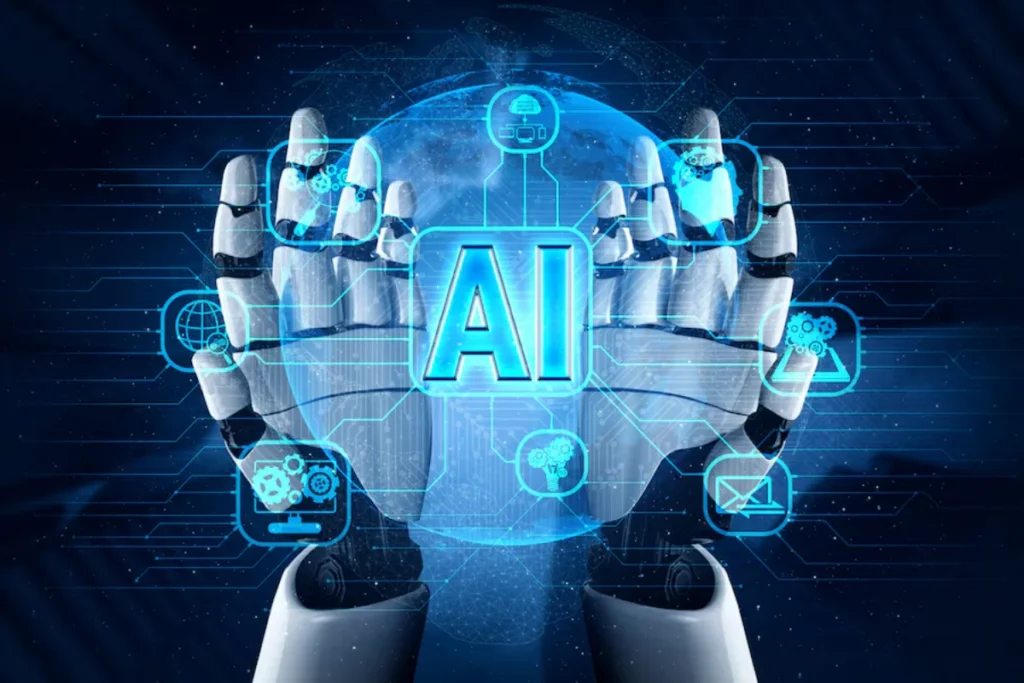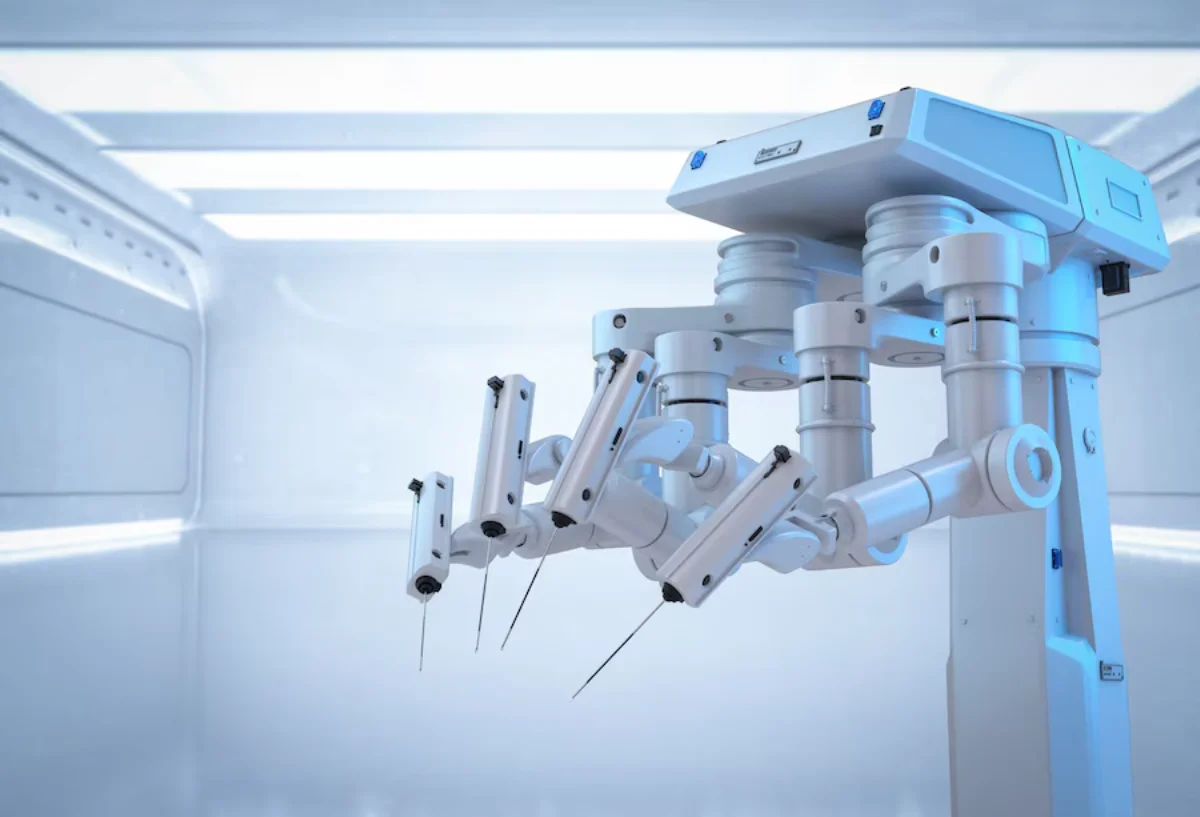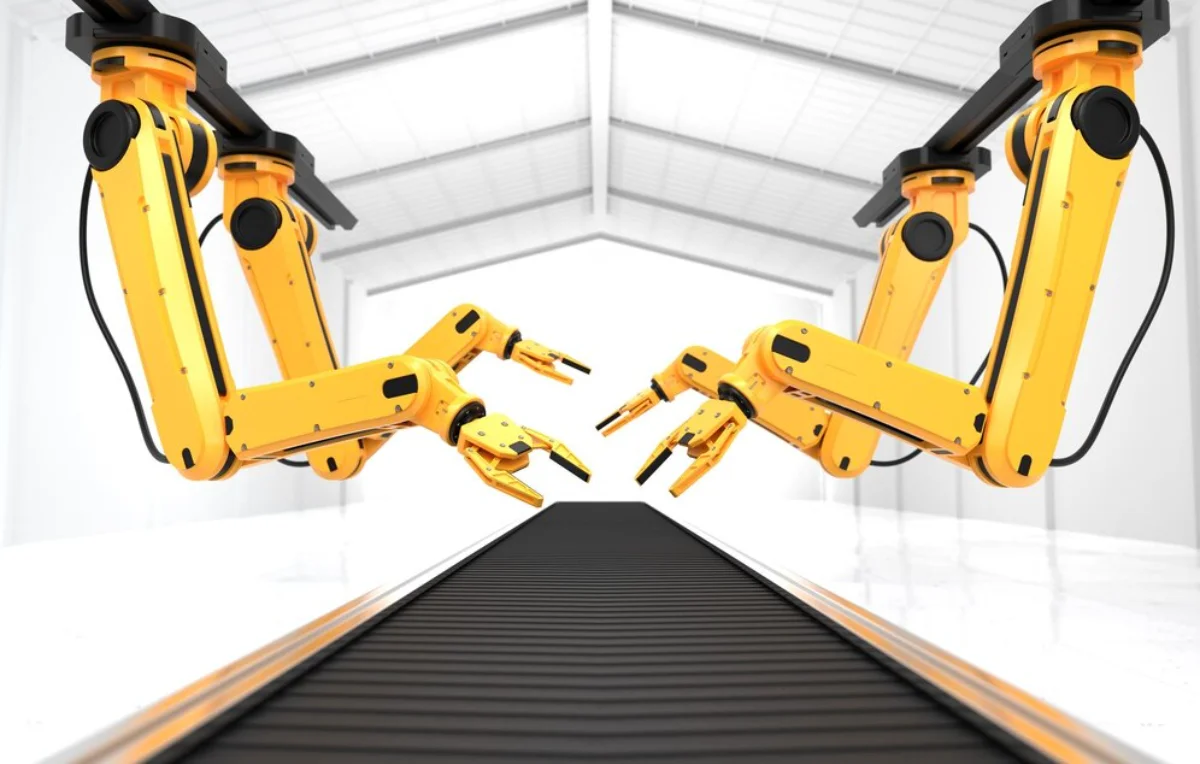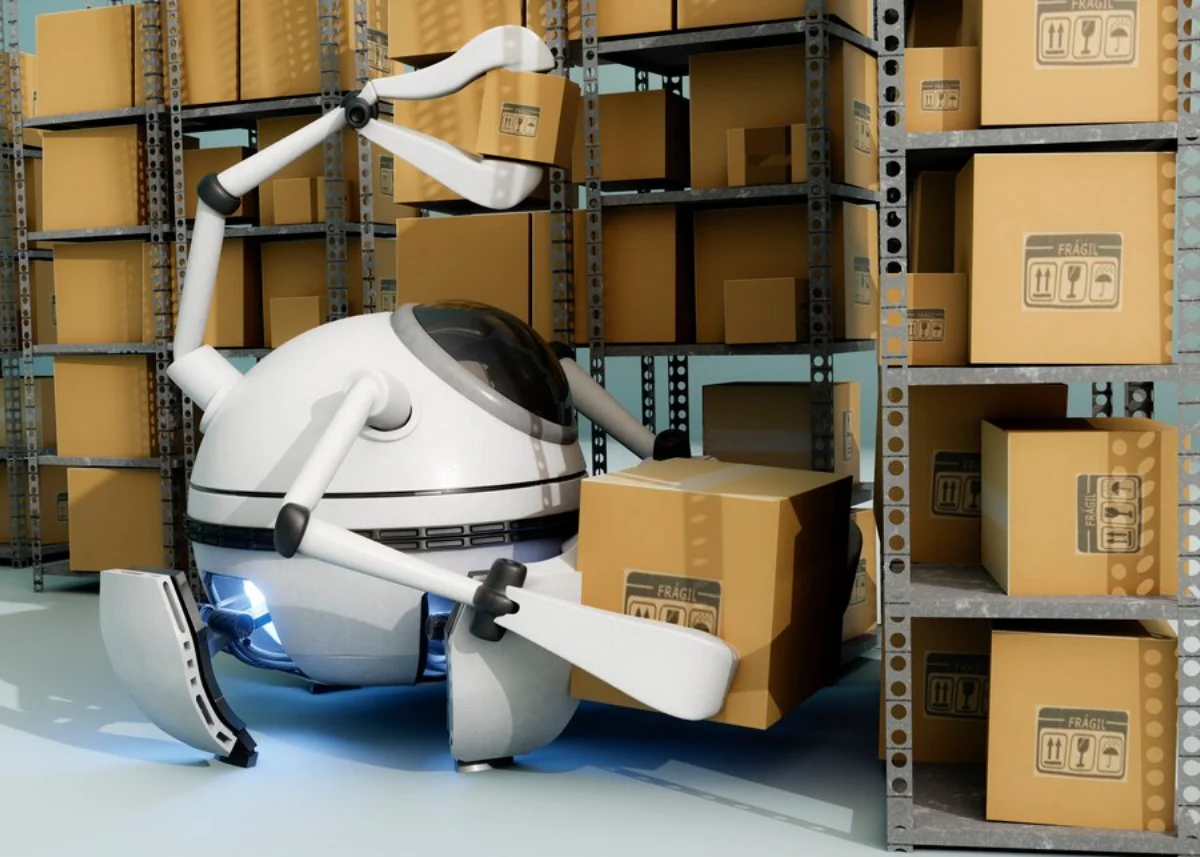The Technology Blog

How AI-Powered Robots Are Changing Industries
AI and robotics aren’t just science fiction anymore. They are changing industries around the globe. AI robotics is changing the game across many fields. It boosts efficiency, productivity, and precision in manufacturing, healthcare, retail, and agriculture. Businesses are quickly adopting AI machines. These tools help them streamline operations, cut costs, and enhance service quality.
But how exactly are AI-powered robots changing industries? What are the key benefits and challenges? And what does the future of AI robotics look like? This article looks at how AI machines affect us. It covers new automation trends and how businesses are changing to keep up with technology.

The Rise of AI Robotics
AI robots use machine learning, computer vision, and automation. They can do complex tasks with little help from humans. Unlike traditional robots that follow pre-programmed instructions, AI-driven machines can learn, adapt, and make decisions based on real-time data.
Key Capabilities of AI-Powered Robots
- Autonomous Decision-Making – AI lets robots handle information and make decisions on their own, without needing help from humans.
- Machine Learning & Adaptability – Robots get better at their tasks. They learn from data and past experiences.
- Computer Vision – AI robots can “see” and analyse their surroundings. This ability makes them valuable in fields like healthcare, agriculture, and logistics.
These capabilities are driving automation trends, leading to widespread adoption across multiple sectors.

Industries Transformed by AI Robotics
1. Manufacturing & Industrial Automation
Manufacturing has been at the forefront of AI robotics adoption. Factories are deploying AI-driven machines to:
- Automate assembly lines – Robots handle precision tasks like welding, painting, and assembling components.
- Enhance quality control – AI systems spot defects quicker and more accurately than people can.
- Boost worker safety – Collaborative robots (cobots) team up with humans. They help lower injuries in dangerous settings.
Tesla and BMW use AI robots for precise car assembly. This boosts production efficiency and improves quality.
2. Healthcare & Medical Robotics
In healthcare, AI-powered robots are revolutionising patient care, surgery, and diagnostics. Some key applications include:
- Surgical robots – Enables precise, minimally invasive procedures.
- AI diagnostic robots – These machines analyse medical images. They detect diseases like cancer faster than human doctors.
- Elderly care robots – AI-driven assistants help elderly patients with mobility, reminders, and companionship.
AI robots in UK hospitals help clean rooms and deliver medications. This cuts down on the workload for healthcare staff.
3. Retail & Customer Service Automation
Retailers are embracing AI robotics to enhance customer experience and improve store management. Key innovations include:
- Autonomous checkout systems – AI-driven cashiers reduce wait times in stores.
- Inventory robots – Robots track stock levels and prevent shortages.
- AI-powered chatbots – Virtual assistants handle customer inquiries, improving efficiency.
Amazon Go stores use AI machines to remove checkout lines. This makes shopping smooth and easy.
4. Logistics & Warehousing
With the boom in e-commerce, AI robotics is optimising logistics and warehousing operations. Common applications include:
- Autonomous warehouse robots – AI-driven robots pick, pack, and sort orders efficiently.
- Self-driving delivery vehicles – Companies like UPS and FedEx are testing AI-powered delivery drones.
- Predictive maintenance – AI anticipates when machines need servicing, preventing costly breakdowns.
Ocado, an online grocery store in the UK, uses AI machines. These machines handle thousands of orders each day with robotic precision.
5. Agriculture & Food Processing
Farmers are leveraging AI robotics to increase food production and efficiency. Applications include:
- Autonomous tractors – AI-powered tractors plough fields and plant crops without human intervention.
- AI crop monitoring – Drones use machine learning to find plant diseases and improve irrigation.
- Automated food processing – AI robots improve food sorting, packaging, and quality control.
John Deere’s AI harvesters check crop quality as they work, boosting yield efficiency.
6. Defence & Security
AI-driven robots are playing a significant role in military and law enforcement, including:
- Autonomous drones – Used for surveillance and reconnaissance.
- AI-powered bomb disposal robots – Reducing human risk in dangerous situations.
- Facial recognition security bots – Enhancing public safety through real-time threat detection.
The UK’s Metropolitan Police tested AI drones to watch over high-risk events.

Benefits of AI-Driven Machines
Increased Efficiency & Productivity
AI-powered robots work 24/7 without fatigue, increasing operational efficiency across industries.
Cost Reduction
Businesses save on labour costs while improving precision and reducing errors.
Improved Safety
AI robots take over dangerous tasks, reducing workplace injuries.
Scalability & Adaptability
AI-driven machines learn and get better. This makes them very adaptable to different environments and challenges.
Challenges & Ethical Concerns in AI Robotics
While AI robotics brings significant benefits, there are also challenges and ethical concerns:
1. Job Displacement & Workforce Impact
With increasing automation trends, concerns over job losses are growing. Governments and companies need to invest in reskilling programs. This will help workers move into new roles.
2. Data Security & Privacy Risks
AI-driven machines collect vast amounts of data. Ensuring data security and preventing cyber threats is crucial.
3. AI Bias & Decision-Making Risks
If AI models are trained on biased data, AI robots may make unfair or unethical decisions. This is especially concerning in law enforcement and hiring.
4. High Costs & Implementation Challenges
AI-powered robots can save money over time, but they cost a lot upfront. This high initial investment can make it hard for smaller businesses to use the technology.
Future of AI Robotics & Automation Trends
The future of AI robotics is promising, with advancements that will further reshape industries. Some emerging automation trends include:
- Humanoid Robots – These are AI robots that show human-like expressions and responses. They are used in customer service and healthcare.
- AI-Integrated Smart Cities – AI-driven machines managing traffic, waste disposal, and security.
- Swarm Robotics – Groups of small AI robots working together to perform complex tasks.
- AI & Human Collaboration – Future workplaces will use AI robots as helpers, not full replacements.
AI robotics will keep evolving as technology advances. This will make industries smarter, safer, and more efficient.
AI Robotics: Transforming Industries with Automation & Smart Machines
AI-powered robots are revolutionising industries by improving efficiency, safety, and productivity. From manufacturing and healthcare to retail and agriculture, the rise of AI-driven machines is reshaping the global economy.
Automation trends offer great benefits. However, they also bring challenges. Job displacement, ethical concerns, and security risks need careful management. Businesses, governments, and individuals need to team up. They must adopt AI responsibly. It’s important to balance new ideas with their social effects.
AI robotics will shape the future. They will change industries, open new opportunities, and alter how people and machines work together.









